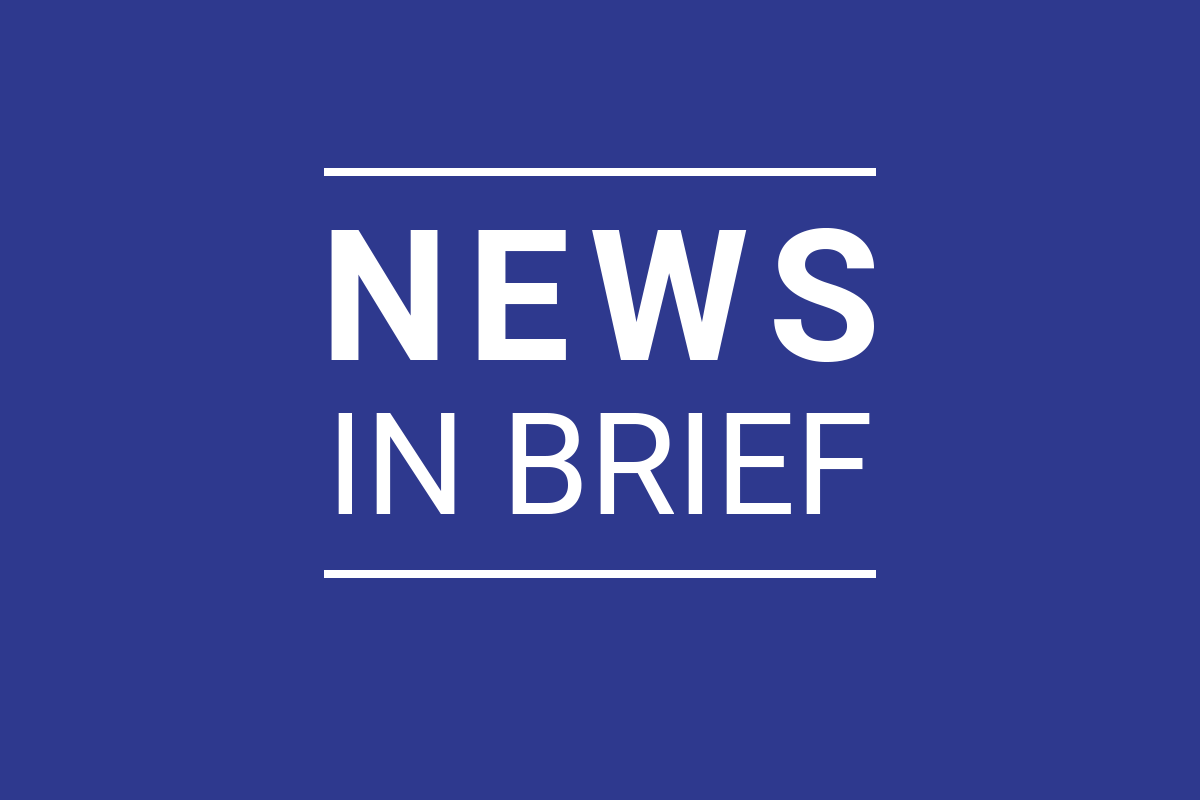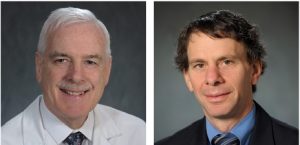
Now Enrolling: EA4231 for Patients with Aggressive B-cell Lymphoma
June 25, 2025
News in Brief, February 2025
February 19, 2025From the Co-Chairs, December 2024


By Peter J. O’Dwyer, MD (left)
and Mitchell D. Schnall, MD, PhD
As the holidays approach and the year winds down, we reflect on what a tumultuous year it has been in cancer treatment and research. It is difficult to think of another year in which FDA has decided so many new treatment approvals. ECOG-ACRIN trials have featured prominently at all of the major cancer research meetings, and each trial has brought an option for patients that did not previously exist. Our major undertaking in breast cancer screening, the TMIST trial, is poised to meet its accrual goal of 108,508 patients. As part of the study, led by Dr. Etta Pisano, participants are randomly assigned to either 2D or 3D mammograms; the number of advanced cancers detected by the two methods will be compared.
This year also saw the culmination of years of preparation on several fronts in how we conduct cancer research, changes that will long outlive any one grant period or set of trials. One focus of increasing interest to the cancer research community at large is Real-World Data (RWD). As you know, ECOG-ACRIN embraced the inclusion of RWD as a key component of our research in 2021, when we formed the Real-World Data Committee, chaired by Dr. Al Benson. Dr. Benson has a long record of translation of therapeutic advances into the community, and evaluation of these advances through Cancer Care Delivery Research studies. Another key participant in this research is Dr. Lawrence Shulman, who has a distinguished record of extending cancer therapeutics into the public health arena to develop standards of care broadly.
It is appropriate to ask: Why did we do this? One reason is that for the last 30 years the proportion of patients accrued to cancer trials has remained stagnant at 3%. By utilizing RWD, we can develop outcome data on a larger and more representative population being treated for the same condition. It became clear that with the majority of patients being treated in the community, establishing a formal structure to obtain RWD prospectively would provide a research outlet for a greater number of community practices, and at the same time generate income to support the activity. And ultimately, we could either adjust our research methods to the speed of information in our age—or become irrelevant in the quest to advance the treatment of cancer. A TED talk by Dr. Amy Abernethy, a breast cancer oncologist who has worked in tech for many years, describes the concept of a “learning environment” in which we all, centers and community, oncologists and patients, tech-savvy or challenged (like me), can contribute to the body of knowledge that will guide the treatment of future patients.
Our first study in this area, PrE1702 for patients receiving standard therapy for EGFR-mutated non-small cell lung cancer, is now open. Not a trial, this study merely records the results of standard treatment, so that we can understand how real-world results compare to those of patients on an EA clinical trial for the same cancer type. We have a central IRB that has deemed the trial IRB exempt, and the study is funded by FDA. Patients do need to be registered, but almost all the data needed are recorded initially, and the footprint of the study is light. We strongly urge broad participation in this pioneering activity on the part of ECOG-ACRIN. Email the PrE1702 study team to learn more. There is increasing enthusiasm at FDA, NCI, and pharma to develop studies in this area of research, and for our future efforts we need to establish feasibility out of the gate.
Read the December 2024 issue here.
![ECOG-ACRIN logo[19516]275×75](https://blog-ecog-acrin.org/wp-content/uploads/2021/03/ECOG-ACRIN-logo19516275x75.png)
